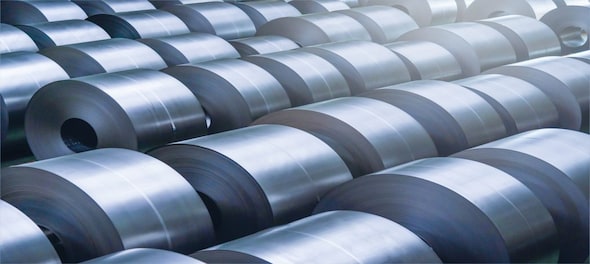
A must-have in the upcoming Union Budget (FY 23) for the Indian stainless steel industry, is the restoration of countervailing duty (CVD) imposed on stainless steel products from China and Indonesia. These CVDs were suspended in the Union Budget 2021-22. Ever since, imports from both countries have surged, there’s uncertainty in the business and investment climate in the stainless steel industry once again, and more so among the medium, small and micro (MSME) producers.
It was precisely to prevent the current situation from occurring, that the CVDs were imposed on Chinese and Indonesian imports in September 2017 and in October 2020 respectively. They were based on detailed investigations by the Directorate General of Trade Remedies (DGTR), Ministry of Commerce, which conclusively proved the existence of non-WTO compliant subsidies in these countries.
The impact of suspension of CVDs, as DGTR would have foreseen, was devastating. The first half of 2021-22 witnessed a 185 percent increase in import volumes of stainless-steel flat products in India compared to the average monthly imports in the last fiscal. The average per month imports too jumped from 34,105 tons per month in FY21 to 63,154 tons per month in this current fiscal.
ALSO READ | View: Expect budget to focus on fuelling economic activity and support employment generating industries
Expectedly, the bulk of the imports came from China and Indonesia, which has increased by 300 percent and 339 percent respectively in the first half of this fiscal compared to the average monthly imports of the last fiscal. Today, Indonesia, with a manufacturing capacity of 55 lakh tons aided by Chinese investments, and with a domestic consumption of only 2 lakh tons, has displaced India to become the second largest manufacturer of stainless steel in the world.
The apparent reason for duty withdrawal in the last Budget was price control, which never happened because of the overall current commodity boom, and resultant inflated raw material costs. For instance, between July 1, 2020 and November 1, 2021, prices of carbon steel scrap shot up by 100 percent from $ 279 per ton to $ 558 per ton, stainless steel scrap (304 grade) by 86 percent from euro 935 per ton to euro 1,735 per ton. Other raw material prices like nickel, ferrochrome and iron ore lumps too saw about 50 percent-100 percent price increase.
Prices of finished stainless steel products like cold rolled coil (304 grade) went up by 71 percent from Rs 1,58,690 per ton on July 1, 2020 to Rs 2,71,190 per ton on November 1, 2021. However, this increase was less than that of Europe and China where prices went up by 118 percent and 78 percent respectively.
Even though the profitability of stainless steel players has seen some improvements in the last few quarters, it remains far lower than those of the carbon steel players. This temporal gain stems from economic recovery and pent-up demand, driven further by government stimulus — factors which will stabilise soon. As the commodity market is cyclic in nature, prices too will follow similar pattern. Moreover, since the sector operates on relatively lower margins and has intermittent profitability, any fall in prices will lead to inventory valuation losses, resulting in a bust following the boom.
The adverse impact on the MSME sector is of even greater concern. Subsidised and dumped imports have a lasting and debilitating impact on domestic ecosystem of demand and supply. If sustained, it compromises competitiveness and self-reliance on the entire sector, making a recovery nearly impossible. We're already staring at job losses in MSMEs, and the transition of small manufacturers into mere traders. The dream of ‘Atmanirbhar Bharat’ is sadly taking the shape of an ‘Aashrit Bharat’ in reality.
—The author, Abhyuday Jindal, is the Managing Director of Jindal Stainless. Views expressed are personal
(Edited by : Ajay Vaishnav)
Check out our in-depth Market Coverage, Business News & get real-time Stock Market Updates on CNBC-TV18. Also, Watch our channels CNBC-TV18, CNBC Awaaz and CNBC Bajar Live on-the-go!


BJP's Hindi heartland dominance faces test in phase 3 polls
May 2, 2024 9:14 PM
Lok Sabha Election: Re-elections at a Ajmer booth after presiding officer misplaces register of voters
May 2, 2024 4:54 PM

